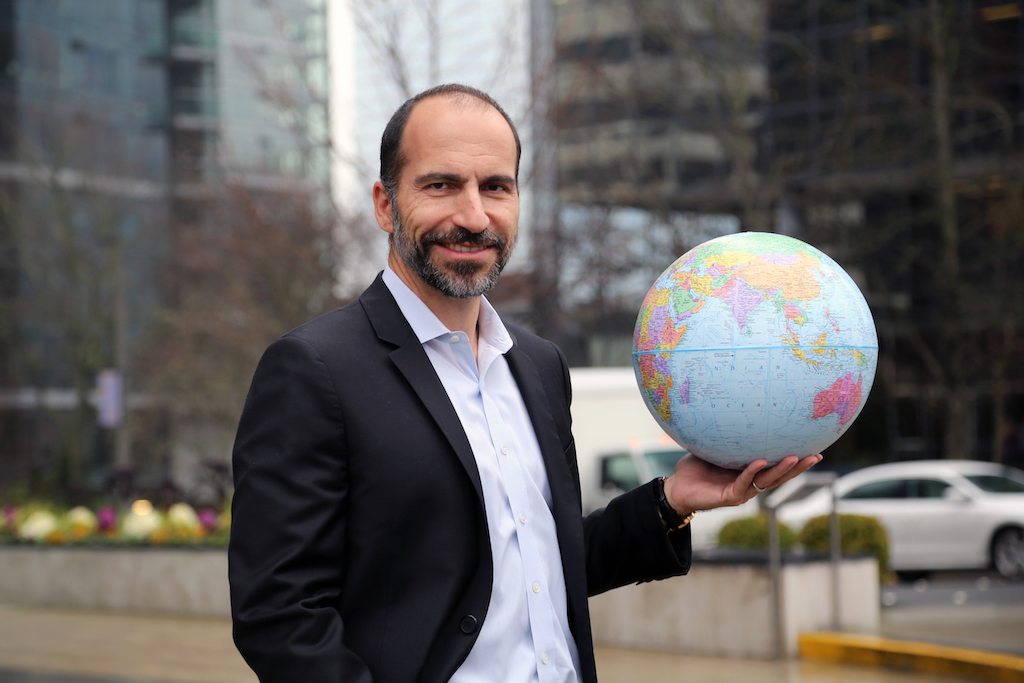Skift Take
From a financial standpoint, President Trump's executive order temporarily blocking travel to the U.S. from the seven countries is going to cost money for Expedia and other travel companies. That's just the dollars and euros part of it -- the moral and legal issues loom large, as well.
Expedia filed a declaration to support Washington State’s suit — the first by a U.S. state — against President Trump’s temporary travel ban against seven Muslim-majorty countries, arguing that it will adversely impact its key corporate goal for 2017 to “Go Global” and will have a negative impact on the bottom line.
In backing the lawsuit, which seeks a stay of Trump’s executive order and is also supported by fellow Washington State businesses Amazon and Microsoft, Expedia Inc. general counsel Robert Dzielak wrote that the company “believes that the Executive Order jeopardizes its corporate mission and could have a detrimental impact on its business and employees, as well as the broader U.S. and global travel and tourism industry.”
Expedia is among a number of travel businesses, ranging from TripAdvisor and Lyft to Airbnb and American Airlines that have opposed the executive order on the grounds that it is contrary to America’s historic values pertaining to freedom of religion and due process.
The Trump administration posits that the executive order is not a “travel ban” but calls for “extreme vetting” of refugees and travelers from the seven countries for security grounds reasons, including combatting terrorism.
1,000 Current Itineraries
Expedia, which has websites in 75 countries and does $72 billion in gross travel bookings annually, stated that it has “at least 1,000 customers” with current itineraries that hold passports from the seven impacted countries and are booked on “flights to, from or through the United States.”
“Almost 500 of the flights have a U.S. origin, over 500 have a U.S. destination, and approximately 30 have connections in the United States,” Expedia’s general counsel stated.
The company said it can’t yet determine how much it will cost to cancel and rebook flights, hotels and other services, and to make other alternative arrangements for its customers.
In addition, the Bellevue, Washington-based company says the temporary ban, which could get extended and expanded after four months, inhibits Expedia’s ability to recruit new employees and could curtail the business travels of some of its 20,000-member workforce in the U.S. and abroad.
“One of Expedia’s 2017 key corporate goals is to ‘Go Global,'” the declaration stated. “The company believes that its growth prospects are best furthered by expanding its services to satisfy travel demand around the world. To that end, Expedia strives to make global travel seamless and easy for the millions of customers its serves worldwide.”
Expedia generated 44 percent of its revenue internationally in 2015, and that fell one percentage point to 43 percent for the first nine months of 2016.
Expedia is providing legal services to all impacted employees and has advised those from the seven countries — Syria, Sudan, Yemen, Iraq, Iran, Somalia and Libya — not to travel abroad, the company stated.
Washington State’s lawsuit was filed in the United States District Court, Western District of Washington. Expedia’s declaration doesn’t broach the legal issues such as whether the executive order is constitutional but focuses on the business impact.
Here’s the full text of declaration:
The Daily Newsletter
Our daily coverage of the global travel industry. Written by editors and analysts from across Skift’s brands.
Have a confidential tip for Skift? Get in touch
Tags: expedia, lawsuits, trump, washington
Photo credit: Expedia CEO Dara Khosrowshahi, shown outside the company's Bellevue, Washington headquarters, has come out strongly against President Trump's executive order curbing travel from seven Muslim-majority countries. Expedia
